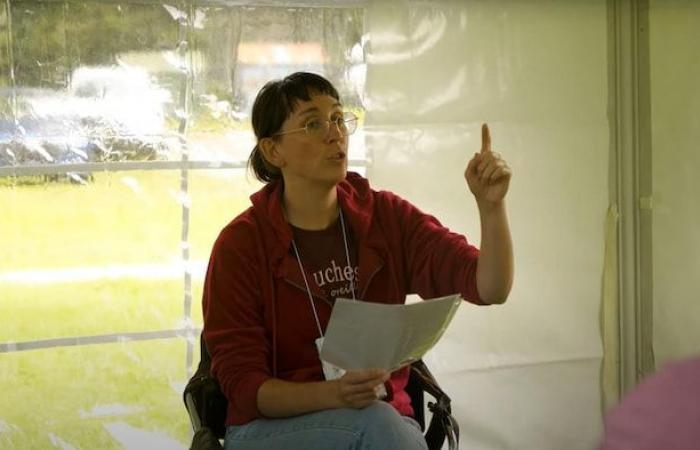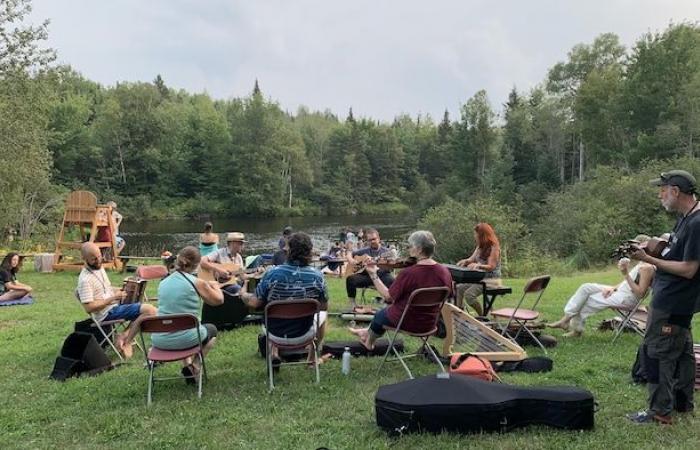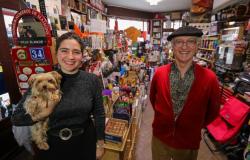LOCAL FOLKLORE – Traditional music is still very much alive at the dawn of 2025 thanks to tradition brokers. Gabrielle Bouthillier and Rachel Aucoin are among those people who ensure that Quebec heritage continues for future generations.
They act as transmission belts through two musical activities. Rachel Aucoin is project director for the Maréemusique organization which oversees the Souches à Oreilles camp.
Gabrielle Bouthillier considers herself a transmitter of sung heritage. She has been running the Traditional Singing Workshop for 12 years. His father, Robert Bouthillier, created it in 2006. People from all backgrounds attend the workshops to increase their repertoire. The facilitator accompanies the participants in their exploration.
I need to do a lot of research. I bring [les chants] with their ethnographic context. Sometimes I present several versions of a song. Because oral tradition is always moving
specifies Gabrielle Bouthillier.
Open in full screen mode
Gabrielle Bouthillier runs the traditional singing workshop and is also a trainer at the Souches à Oreilles camp.
Photo: YouTube screenshot
For her, it is normal for songs to transform. What she finds astonishing is that they preserve themselves. When we collect songs at 21e century which have exactly the same shape as they had three or four hundred years ago… it’s still a bit spectacular
she marvels.
According to her, it is thanks to the coherence and robustness of the structure of the songs that the songs manage to hold together. It’s certainly also because of people like her, who take care to keep Quebec folklore alive.
All-inclusive trad music
Every summer for a little over ten years, the Saint-Alexandre musical camp in Saint-Alexandre de Kamouraska has welcomed Souches à ears. The Maréemusique organization, whose main activity is the organization of this camp, is based in Lévis.
Open in full screen mode
A river jam was organized at the Souches à Ears camp, with the aim of trying something new. The initiative was very successful.
Photo : Jeannine Webb
The camp is intended to be an immersive experience in the world of traditional music. You can go to camp with the aim of improving your instrumental technique or learning repertoire
explains Rachel Aucoin. For the project director, music always brings enriching encounters. People arrive with their baggage and their stories to tell.
It’s music that is so alive and that is colored by the personality and background of each person who carries traditional music. For me, it’s something so precious and alive. This is the most beautiful quality of this music. It touches directly the hearts of the people who carry it.
It is for this reason that Rachel returned to traditional music after a course in classical piano. The transmission of music is done in a completely different way. During camp stays, knowledge mixes. Each trainer arrives with his repertoire. Everyone has their own transmission baggage to sprinkle around them
observed the pianist.
Interest young people in tradition
The Souche à Oreilles camp welcomes music lovers aged 5 and over. Often, they arrive by ricochet. We drag them with family or friends. The young people who come to the camp never want to leave
rejoices Rachel Aucoin. They quickly feel a sense of belonging and they feel that they are doing something that connects them to others in a living and concrete way.







